
Transition to Autumn: Nourishing the Body, Mind, and Spirit
As the days grow shorter and the air becomes crisp,

Kick-start, energise, rejuvenate
All carefully planned and prepared to help nourish, reset and rejuvenate the body and mind.

In Modern times Anxiety is becoming increasingly prevalent. It affects millions of people worldwide. It is a feeling of unease, such as worry or fear, that can be mild or severe and can interfere with daily activities. Anxiety can be caused by a variety of factors, including stress, genetics, and environmental factors.
Anxiety is a complex mental health disorder that can present itself in a variety of ways. Physical symptoms such as tense muscles, headaches, dizziness, sweating, sleep problems and an irregular heartbeat are common manifestations of anxiety. These symptoms can be distressing and can have a significant impact on an individual’s quality of life.
Beyond physical symptoms, anxiety can also cause negative thoughts and feelings, which can be overwhelming and make it difficult to engage in day-to-day activities. Fortunately, there is a range of treatments available to help manage anxiety symptoms.
In Eastern medicine, anxiety is viewed as a multifaceted condition that requires a holistic approach to treatment.
The quality of qi/Ki movement is important. The ideal Qi flow is smooth with mo imbalances or stagnation. If you have some sort of blockage whether physical, emotional or spiritual, this will eventually manifest as a disease.
Anxiety can be viewed as a dual issue in Chinese medicine, involving both the heart and the blood. The heart, responsible for pumping blood throughout the body, is also associated with emotions such as joy and anxiety. Blood, which circulates nourishment and removes waste from cells, is linked to overall emotional stability, or “Shen.”
If the heart is disrupted by stress or other factors, it can compromise its function, leading to symptoms of anxiety. Additionally, if circulation is disrupted, it can affect emotional well-being.
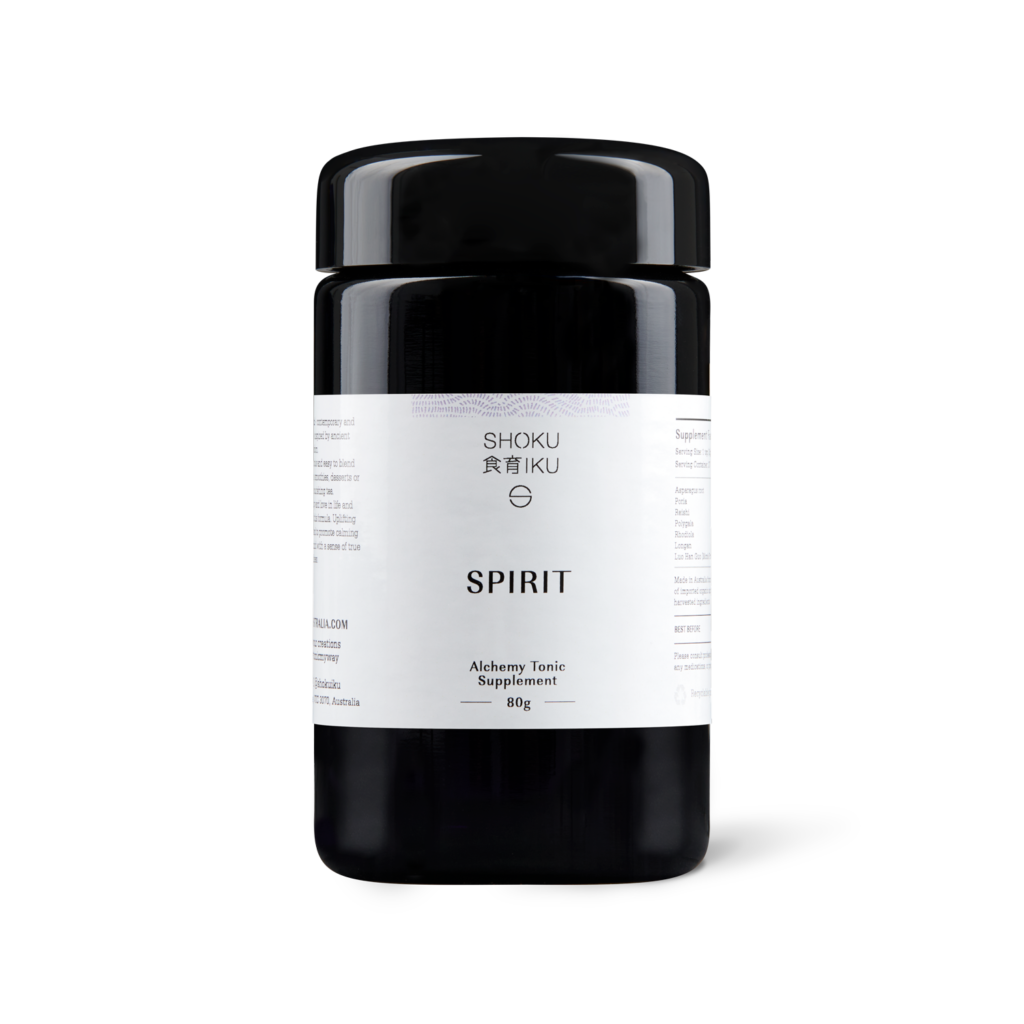
Spirit: Our Alchemy blend, formulated for anxiety is designed to help calm the mind and reduce feelings of stress and anxiousness. This particular supplement contains a unique blend of natural ingredients, including Asparagus root, Poria, Reishi, Polygola, Rohodiola, Longan, and Luo han guo.
Together, these natural ingredients work synergistically to help promote a sense of calm and relaxation in the body and mind. This herbal supplement may be particularly beneficial for individuals who experience feelings of anxiety or stress regularly and are looking for a natural way to support their overall well-being.
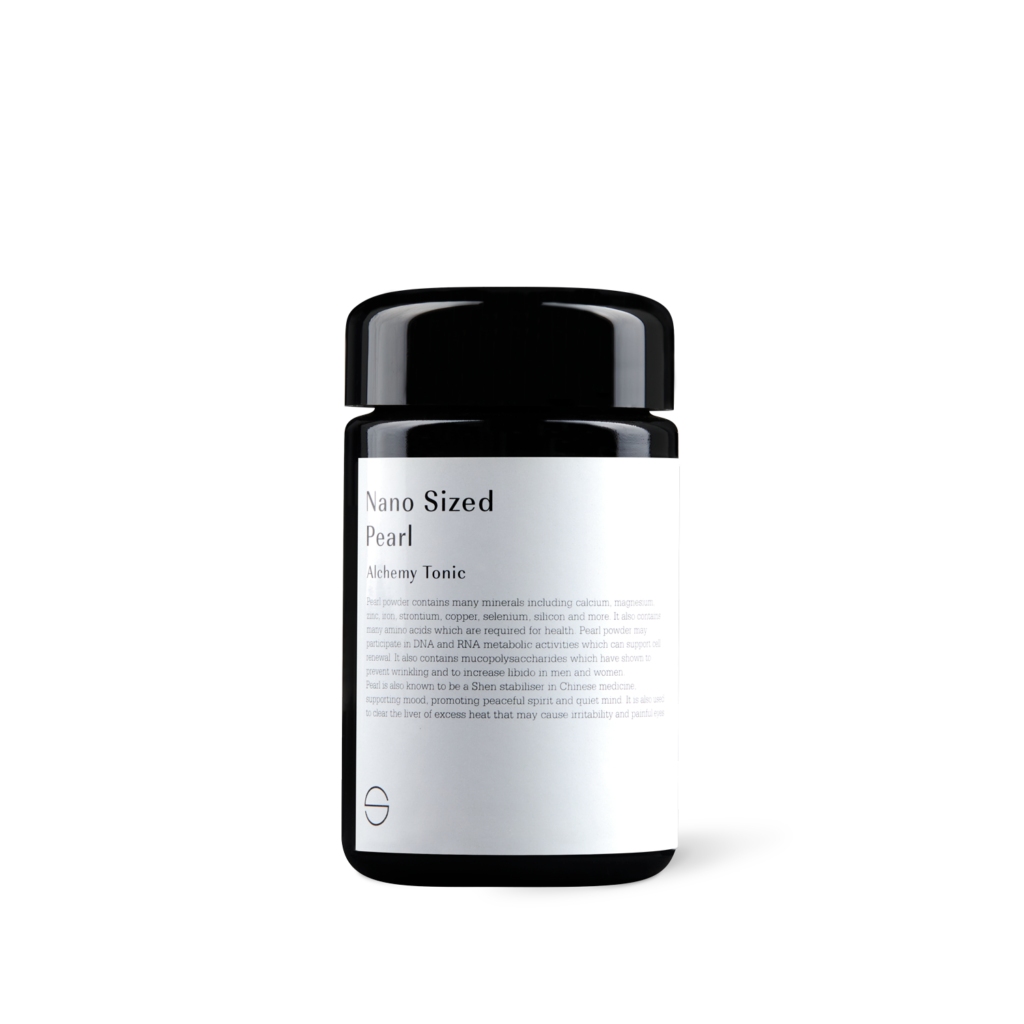
Pearl: Pearl is a natural substance that has been used in traditional Chinese medicine for thousands of years to promote overall health and well-being. One of how Pearl may help to calm anxiety is through its effect on the nervous system. It is why pearl is considered to be a Shen herb, having a calming effect on the mind and helping to improve mood.
Pearl contains various amino acids and minerals, including magnesium, that are essential for healthy nerve function. Magnesium plays a key role in regulating the nervous system and may help reduce feelings of anxiety and stress.
Some studies have also suggested that Pearl may help to improve sleep quality, which can be particularly beneficial for individuals who experience anxiety and have difficulty sleeping.
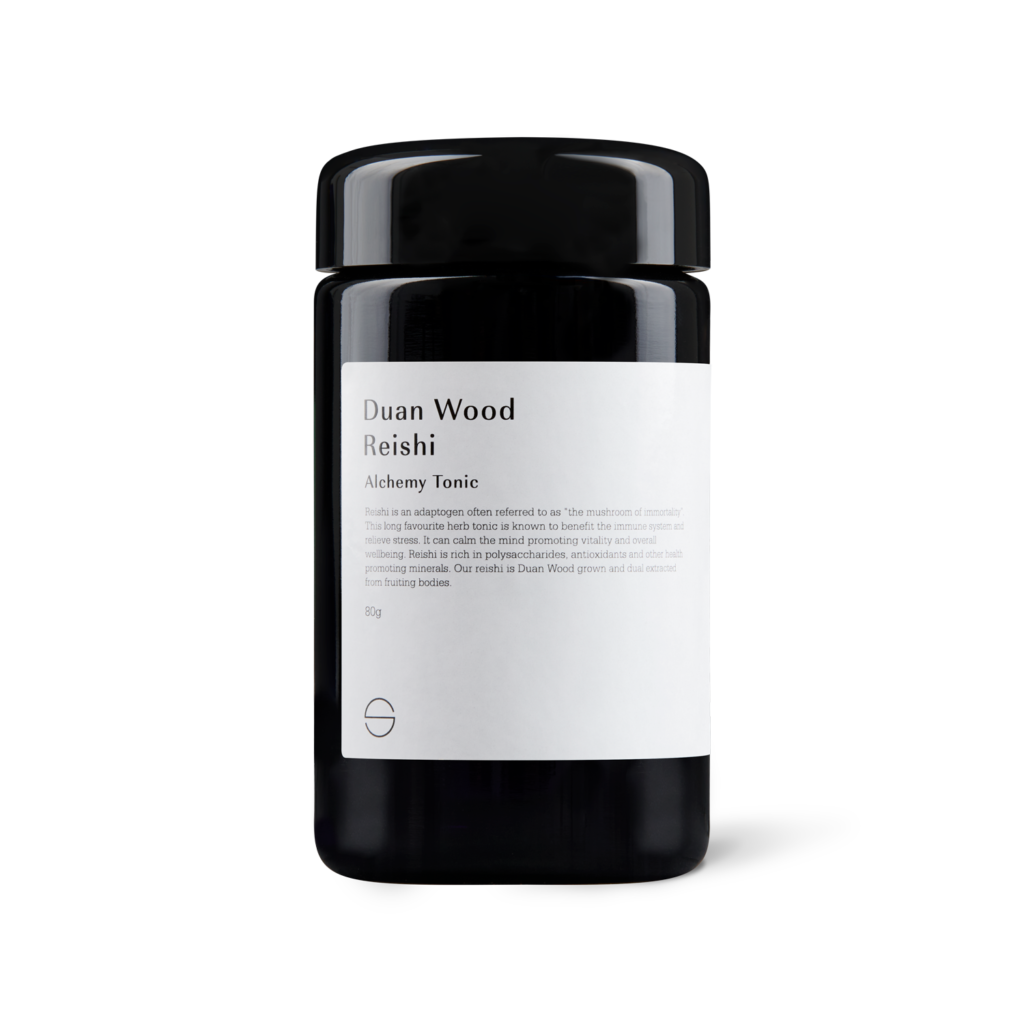
Reishi: Reishi contains several bioactive compounds, including triterpenes and polysaccharides, that are believed to have anti-inflammatory and antioxidant properties. These properties may help to reduce inflammation and oxidative stress in the body, which can contribute to feelings of anxiety.
Reishi is believed to have a calming effect on the mind and to help nourish the heart and liver by tonifying the Qi and nourishing the blood, which can help to calm the mind and reduce feelings of anxiety.
Furthermore, reishi is an adaptogenic herb, which means that it may help the body better cope with stress. Adaptogens are believed to work by regulating the hypothalamic-pituitary-adrenal (HPA) axis, which is the body’s primary stress response system. By regulating the HPA axis, reishi may help to reduce feelings of anxiety and promote a sense of calmness.
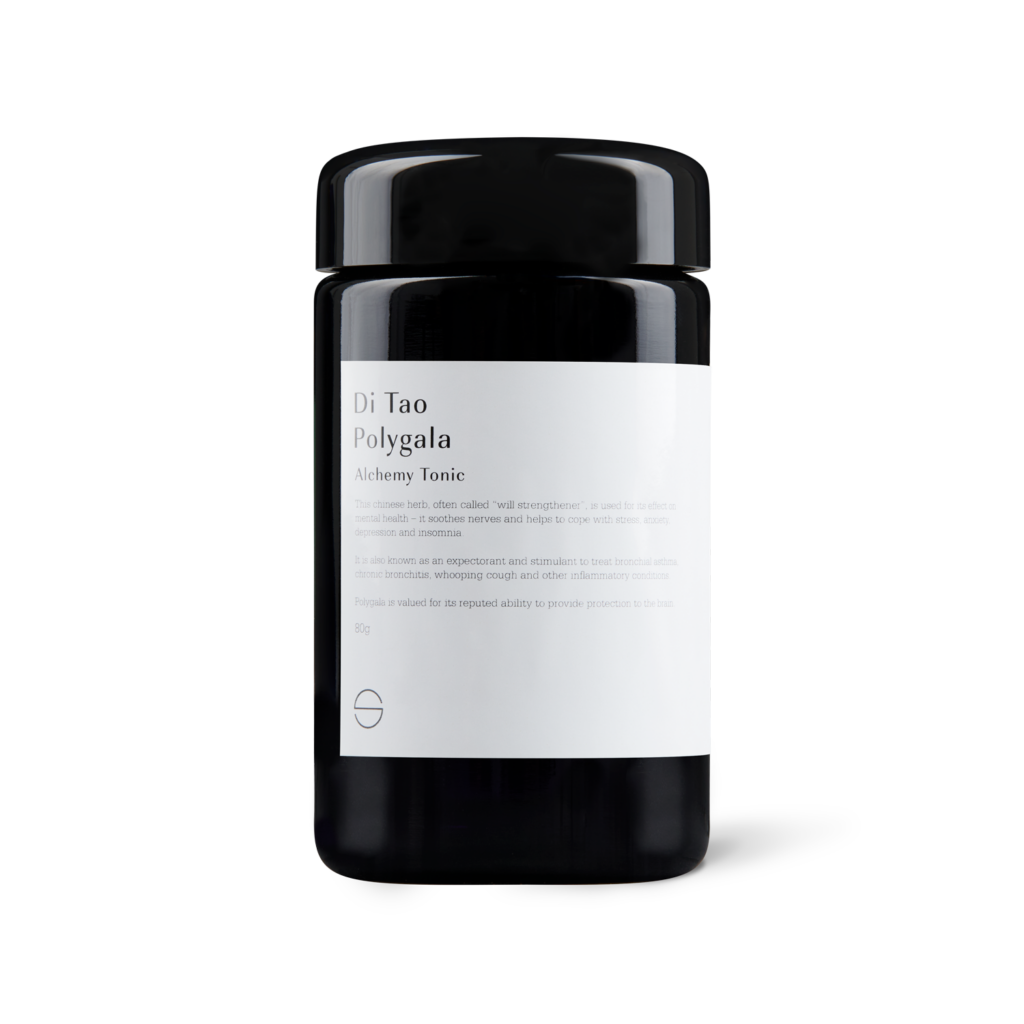
Polygala: Polygala is believed to have a calming effect on the mind and to help nourish the heart and lungs.
Polygala works by regulating the flow of Qi, which is the vital energy that flows through the body’s meridians. It is believed that when Qi is blocked or unbalanced, it can lead to a variety of physical and emotional symptoms, including anxiety. By regulating the flow of Qi, polygala may help to reduce feelings of anxiety and promote a sense of calmness.
Polygala has also been shown to have a positive effect on neurotransmitter levels in the brain, particularly serotonin and dopamine, which are involved in regulating mood and emotions. By increasing levels of these neurotransmitters, polygala may help to reduce anxiety and improve mood.
Several studies have investigated the effects of polygala on anxiety in both animals and humans. A 2015 study published in the Journal of Ethnopharmacology found that polygala extract reduced anxiety-like behaviour in rats, suggesting that it may have an anxiolytic effect. Another study published in the same journal in 2016 found that a combination of polygala and another herb called Poria was effective in reducing anxiety symptoms in patients with generalized anxiety disorder.
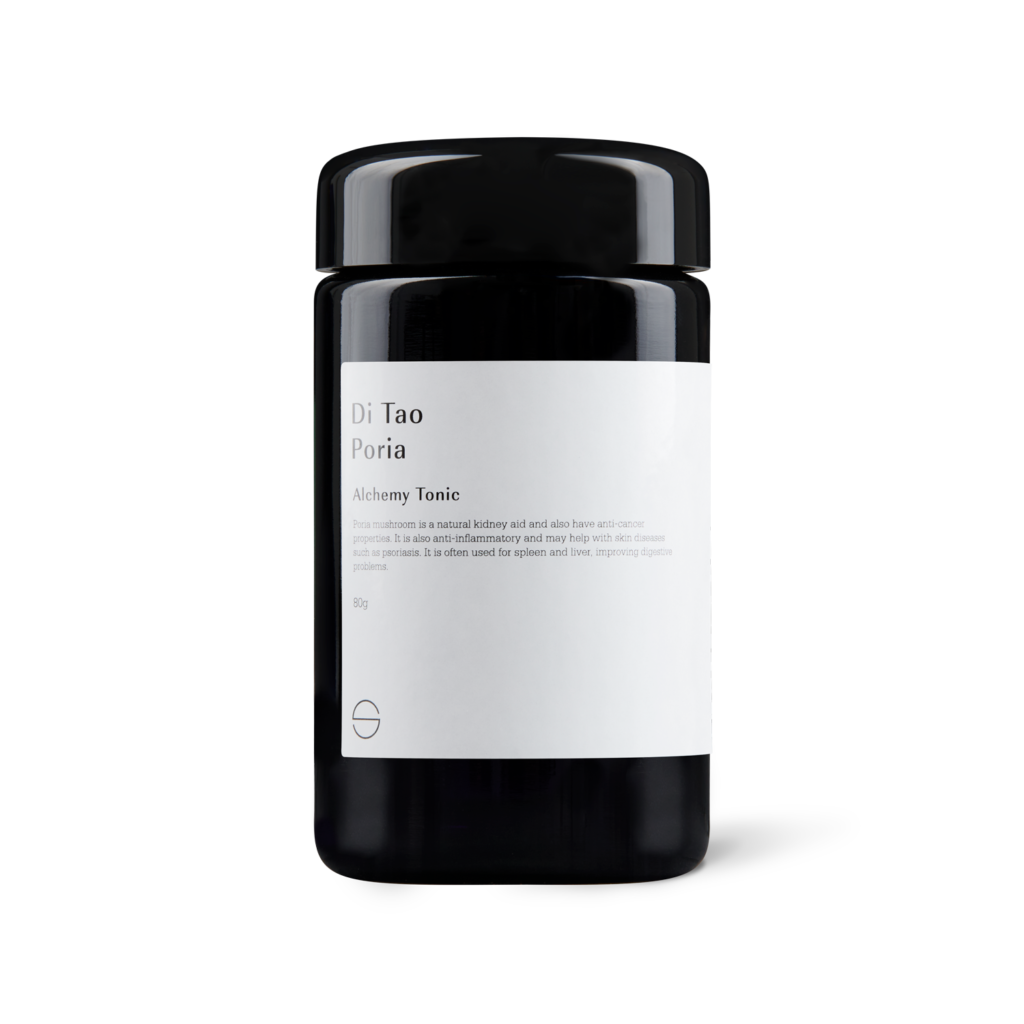
Poria: Poria contains several bioactive compounds, including polysaccharides, triterpenoids, and pachymic acid, which are believed to have anti-inflammatory, antioxidant, and immune-modulating properties. These properties may help to reduce inflammation and oxidative stress in the brain, which can contribute to feelings of anxiety.
Poria has also been shown to have a positive effect on neurotransmitter levels in the brain, particularly GABA, which is an inhibitory neurotransmitter that is involved in regulating anxiety and stress. By increasing levels of GABA, Poria may help to reduce anxiety and promote relaxation.
Several studies have investigated the effects of Poria on anxiety in both animals and humans. A 2016 study published in the Journal of Ethnopharmacology found that a combination of Poria and Polygala was effective in reducing anxiety symptoms in patients with generalized anxiety disorder. Another study published in the same journal in 2019 found that Poria extract reduced anxiety-like behaviour in mice.
In Taoism, Poria is considered a sacred plant and it is often used in spiritual ceremonies and rituals.
One of the reasons why Poria is valued in Taoism is its ability to enhance spiritual awareness and promote inner peace. Poria is believed to have a calming effect on the mind and body, which can help individuals to achieve a state of deep relaxation and meditation.
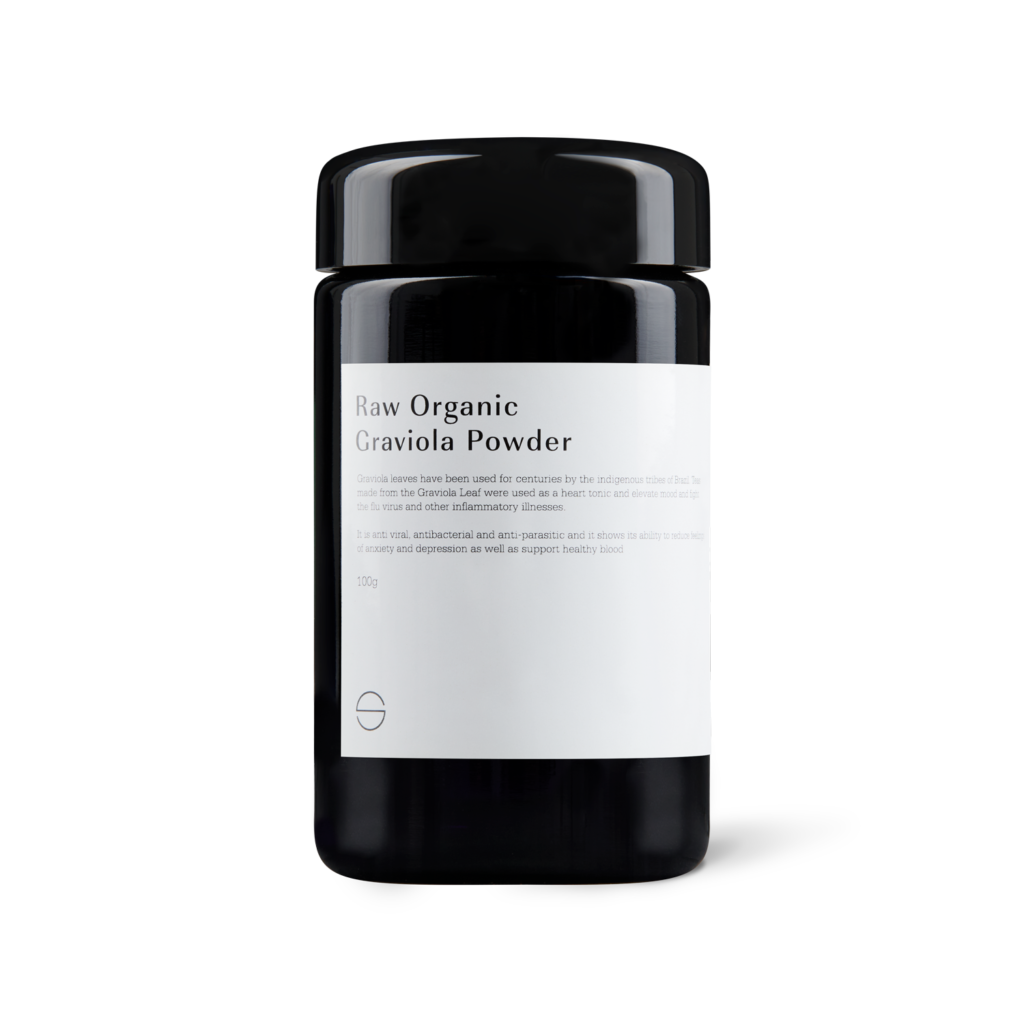
Graviola: Graviola has been shown to have a positive effect on neurotransmitter levels in the brain, particularly serotonin, which is a neurotransmitter that is involved in regulating mood and anxiety. By increasing levels of serotonin, graviola may help to reduce anxiety and promote a sense of calmness.
Several studies have investigated the effects of graviola on anxiety in both animals and humans. A 2018 study published in the Journal of Ethnopharmacology found that graviola leaf extract reduced anxiety-like behaviour in mice.
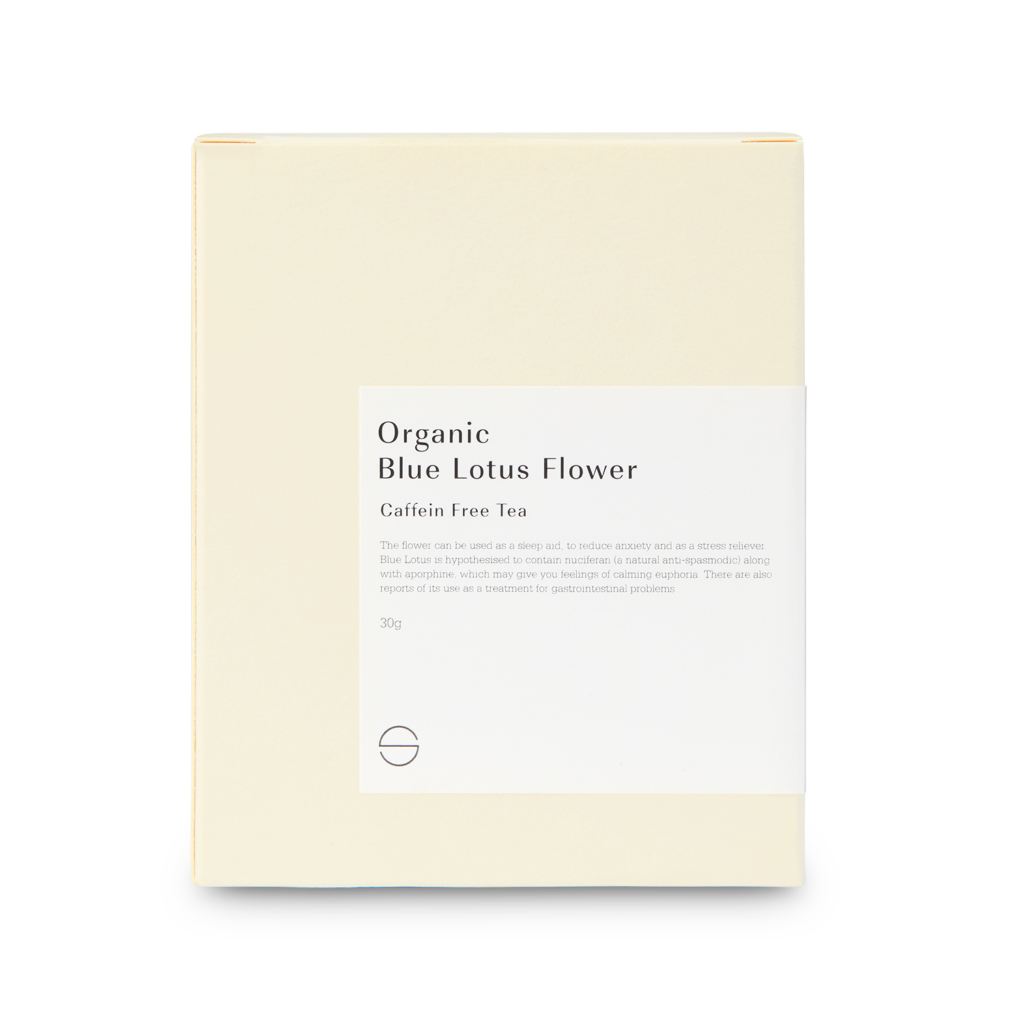
Blue lotus: Blue lotus has a long history of use in traditional medicine for its calming and soothing effects on the mind and body. In ancient Egyptian and Indian cultures, the plant was often used as a sedative and mood enhancer and was believed to promote feelings of relaxation and tranquillity.
One of the key compounds found in blue lotus is aporphine, which has been shown to have anxiolytic (anti-anxiety) properties. Aporphine acts on the central nervous system by increasing levels of dopamine, a neurotransmitter that is associated with feelings of pleasure and reward. By increasing dopamine levels, blue lotus may help to reduce anxiety and promote a sense of calmness.
In addition, blue lotus has been shown to have sedative effects, which can also contribute to its ability to reduce anxiety. The plant contains alkaloids such as nuciferine and apomorphine, which have been shown to have sedative properties.
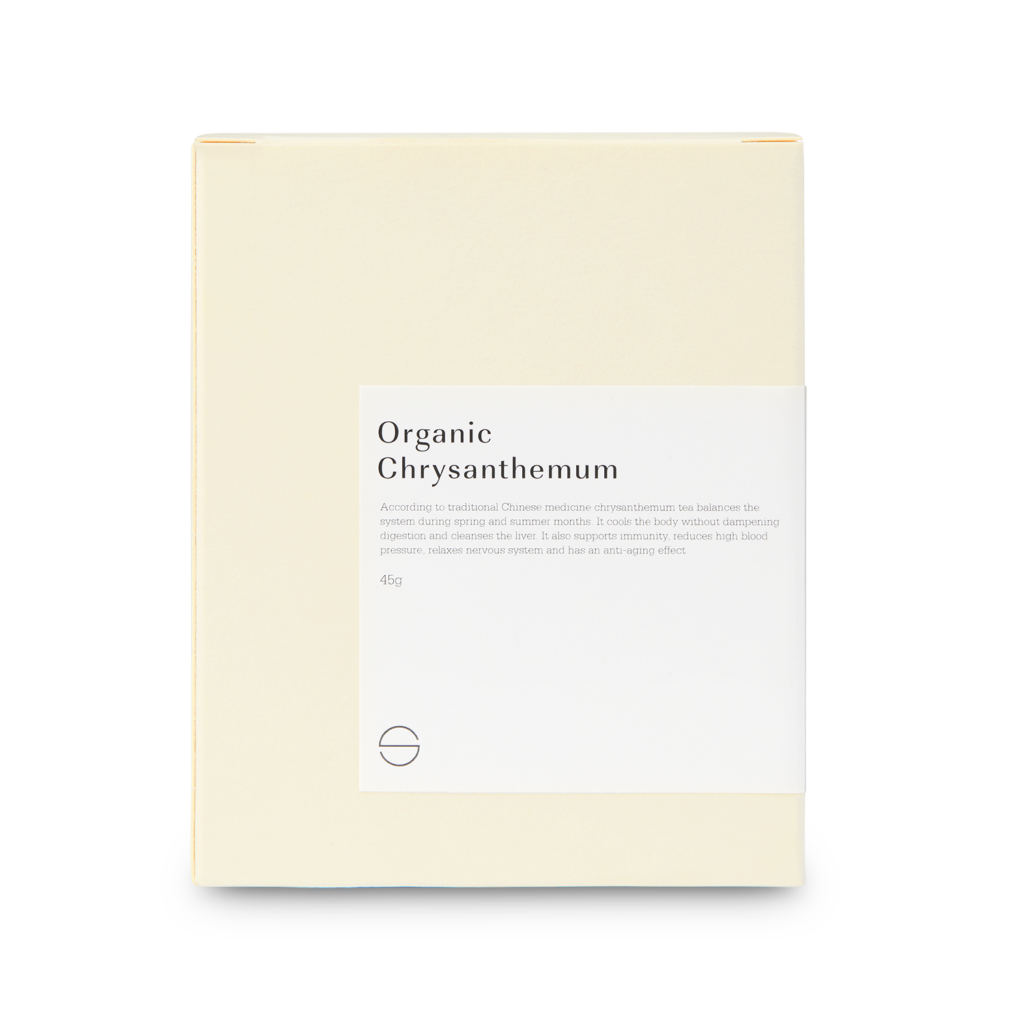
Chrysanthemum: One of the key components found in chrysanthemum is apigenin, a flavonoid that has been shown to have anxiolytic and sedative effects. Apigenin acts on the GABA receptors in the brain, which are responsible for regulating anxiety and stress levels. By activating these receptors, chrysanthemum may help to reduce anxiety and promote a sense of calmness.
In addition to its anxiolytic effects, chrysanthemum has also been shown to have antioxidant and anti-inflammatory properties. These properties can help to protect the brain from oxidative stress and inflammation, which have been linked to anxiety and other mood disorders.
In Eastern medicine, the plant is believed to have a cooling and calming effect on the body and mind, making it a popular remedy for individuals experiencing anxiety, stress, and other emotional imbalances.
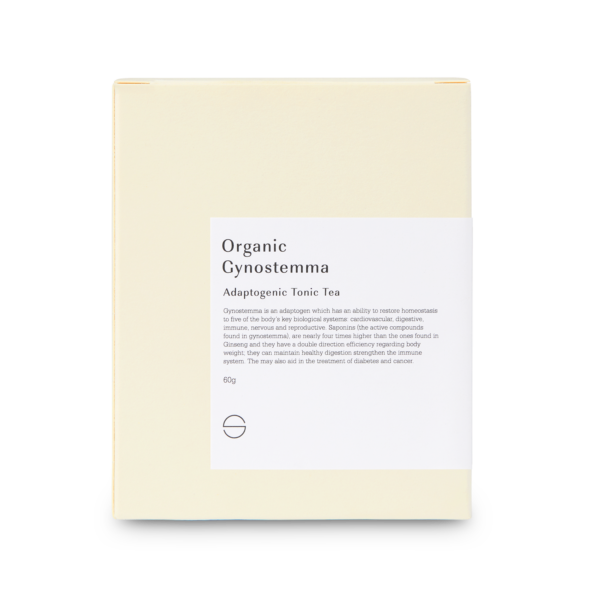
Gynostemma: Gynostemma contains several bioactive compounds that are believed to have anxiolytic (anti-anxiety) effects, making it a potential natural remedy for individuals experiencing anxiety-related symptoms.
One of the key components found in gynostemma is saponins, a class of compounds that have been shown to have anxiolytic effects. Saponins act on the neurotransmitters in the brain that regulate anxiety and stress levels, helping to reduce feelings of anxiety and promote relaxation. In addition, gynostemma has been shown to have antioxidant and anti-inflammatory properties, which can help to protect the brain from oxidative stress and inflammation that can contribute to anxiety.

As the days grow shorter and the air becomes crisp,

Marine phytoplankton, the microscopic organisms that form the foundation of

In recent years, the skincare industry has significantly shifted towards
Copyright Shoku Iku © 2024 | All Rights Reserved.
The statements on this website have not been evaluated by the TGA or FDA. These products are not intended to diagnose, treat, cure or prevent any disease.
Sign up to receive your discount.